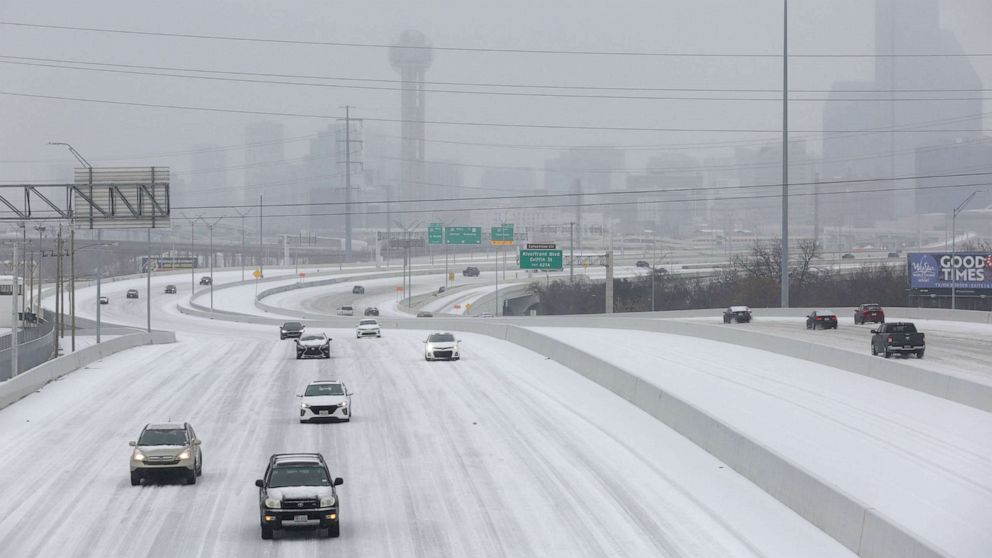An ice storm slamming Texas this week is crippling roads, closing schools and canceling flights.
The freezing rain began Monday and is expected to last through Thursday morning. The ice will stretch from Texas through Oklahoma, Arkansas, Tennessee and into Kentucky.
Some areas have already seen 1 to 2 inches of sleet on top of a glaze of ice, creating a traffic nightmare.
By Tuesday evening, the ice will be falling in Austin and Dallas as well as Little Rock, Arkansas; and Memphis and near Nashville, Tennessee.
On Wednesday morning, the heaviest ice will be in Texas from Midland to Austin and into Dallas.
The ice could weigh down power lines and trees, so officials are urging Texans to be prepared for power outages and be mindful of the possibility of trees falling onto cars and homes.
The National Weather Service is urging people to avoid driving if possible. Many Dallas-area schools closed for Monday and Tuesday.
In Arlington, Texas, near Dallas, the police department said it’s responded to multiple accidents, including a deadly rollover crash.
In Austin, firefighters said they’ve responded to over 90 accidents, including one with a fatality.
The Austin Fire Department also said there have been two fires caused by space heaters.
“Please, STAY HOME AND OFF THE ROADS, give space heaters plenty of space, never use your oven to stay warm, and keep generators outside,” the fire department tweeted.
More than 1,700 flights have been canceled in the U.S. as of Tuesday afternoon. Airports in Dallas, Austin, Nashville and Denver have been hit the hardest.
A devastating ice storm in February 2021 crippled the state’s power grid and left millions without power or running water for days in freezing weather.
Meanwhile, the Midwest is facing dangerously cold temperatures.
On Tuesday morning, the wind chill — what temperature it feels like — plunged to minus 23 degrees in Minneapolis and minus 11 in Chicago.
In Peter Sinks, Utah, the temperature fell to minus 62 degrees on Monday, marking the coldest day in the state this century.
For the Northeast, the coldest air of the season is on its way. On Saturday morning, wind chills are forecast to drop to minus 11 degrees in New York and minus 35 degrees in Boston.
Parts of Maine could see wind chills at minus 50 degrees, which would be the coldest seen there since the 1980s.
Despite the bitter temperatures, this month still marks the warmest January on record for dozens of cities, including in the Upper Midwest and Northeast.
Abcnews
Tags:Ice storm attack




